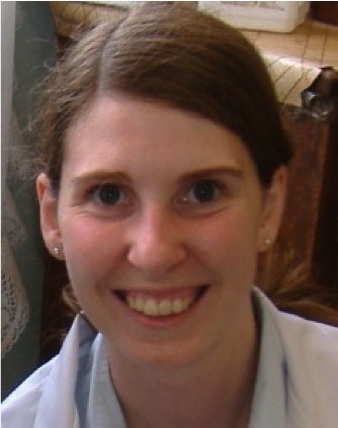MBBS, BSc (Hons), MRCPCH
Fiona.mcquaid@ed.ac.uk
Research interests
Malaria is a major cause of childhood mortality and morbidity worldwide. I am a paediatric doctor with a special interest in infectious disease in children. Having spent the first part of my training in London and Oxford combining clinical training with academic work, I arrived in Edinburgh in 2014/2015 to undertake a PhD investigating the molecular mechanisms of rosetting in severe Plasmodium falciparum malaria.
Phd aims
Rosetting is the adhesion of uninfected red blood cells (RBCs) to parasite infected red blood cells (iRBCs) and is associated with severe Plasmodium falciparum malaria in African children. It is though to contribute to the sequestration of iRBCs in the microvasculature which in turn causes obstruction, inflammation and tissue damage. The main family of parasite derived molecules responsible for rosetting, are known as Plasmodium falciparum Erythrocyte Membrane Protein One (PfEMP1) and are found on the cell surface of iRBCs. My research focusing on the corresponding receptors on the uninfected host RBCs. Potential candidates include Complement receptor 1, glycosaminoglycans (heparin sulphate and chondroitin sulphate), Glycophorins and ABO blood group sugars, however it is not clear which are essential or accessory and whether they would be amenable to therapy.
I aim to investigate these and other receptors and to explore the potential for novel rosette-reversing adjunctive therapies for severe disease. This involves experiments on both laboratory adapted malaria parasites and clinical samples from children with malaria in Africa.
Curriculum Vitae
2015-present
- Edinburgh Clinical Academic Training (ECAT) Fellow – Wellcome Trust funded PhD Clinical Fellowship
2013-2014
- Paediatric Clinical Research Fellow, Oxford Vaccine Group, University of Oxford
2012
- Member of the Royal College of Paediatrics and Child Health
2010-2014
- Paediatric training, London deanery, currently out of programme for research (OOPR)
2008
- MBBS with Distinction in Clinical Science and Faculty of Medicine Prize, Imperial College London
2006
- BSc with First Class Honours, Medical Sciences with Psychology and Psychiatry, Imperial College London
Publications
McQuaid, F., Jones, C., Stevens, Z. et al (2016) Factors influencing women’s attitudes towards antenatal vaccines, group B Streptococcus and clinical trial participation in pregnancy: an online survey. BMJ Open. 6:e010790 doi:10.1136/bmjopen-2015-010790
McQuaid, F. and Plumb, J. (2015) More needs to be done to prevent Group B strep infection in the UK. British Journal of Midwifery. 23(6): 418-423
McQuaid, F., Snape MD. John TM., et al (2015) Persistence of specific bactericidal antibodies at 5 years of age after vaccination against serogroup B meningococcus in infancy and at 40 months. CMAJ. Apr 21:187(7)E215-23
McQuaid, F., Long, A-M. and Warne, S. (2015) A vomiting baby. BMJ. Jan6;350:h14.
McQuaid, F. and Snape, MD. (2014). Will booster doses be required for meningococcal B vaccine? Expert Review of Vaccines. Mar; 13(3):313-5
McQuaid, F., Snape, M.D., John, T., et al (2014) Persistence of bactericidal antibodies to 5 years of age following immunisation with serogroup B meningococcal vaccines at 6, 8, 12 and 40 months of age. PIDJ. 33(7): 760-6
Kandasamy, R., Voysey,M, McQuaid, F. et al (2014). “Systematic review of the Nonspecific Immunological Effects of Selected Routine Childhood Immunizations” Report presented to WHO SAGE working group, 2014.
McQuaid, F., Jones, C., Stevens, Z., et al (2014, epub 2013). Attitudes towards vaccination against Group B streptococcus in pregnancy. Archives of Disease in Childhood. 99(7):700-1
McQuaid, F., Bowden-Jones O. and Weaver, T. (2007). Contingency management for substance misuse. British Journal of Psychiatry, Aug 189: 97-98

